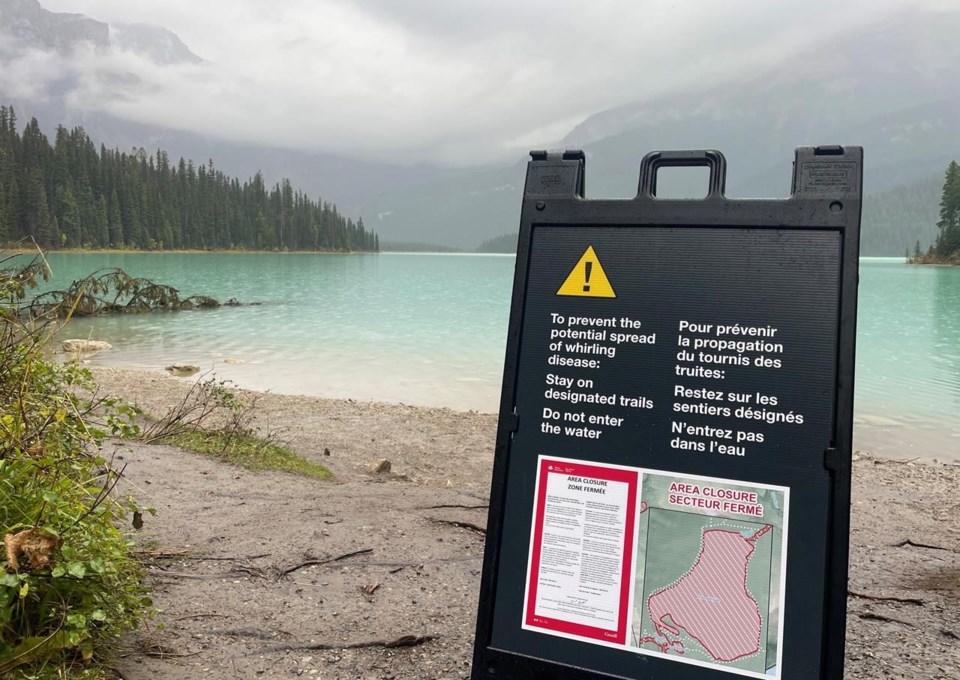OTTAWA — The Columbia River watershed in B.C. has been declared an infected area for whirling disease, a parasite that causes deformities in fish and has a high mortality rate.
The declaration by the Canadian Food Inspection Agency on Monday imposes restrictions on the movements of live or dead fish and equipment from the Columbia watershed to other waterways.
The agency says activities that now require permits include the transport of used aquaculture equipment and the movement of fish or sediment samples for testing purposes.
A statement from the agency says the disease was first detected in the Columbia watershed in December.
The rest of B.C. has been declared a buffer area for the disease, meaning it may occur but its presence has not yet been confirmed.
There is no known treatment for whirling disease, which is caused by a parasite and makes fish swim in unusual circular patterns.
The inspection agency says it has a 90-per-cent mortality rate and once introduced, elimination of the parasite from wild fish populations isn't usually possible.
It says whirling disease poses no health risk to humans or pets, and infected fish can be eaten safely.
This report by The Canadian Press was first published May 7, 2024.
The Canadian Press



